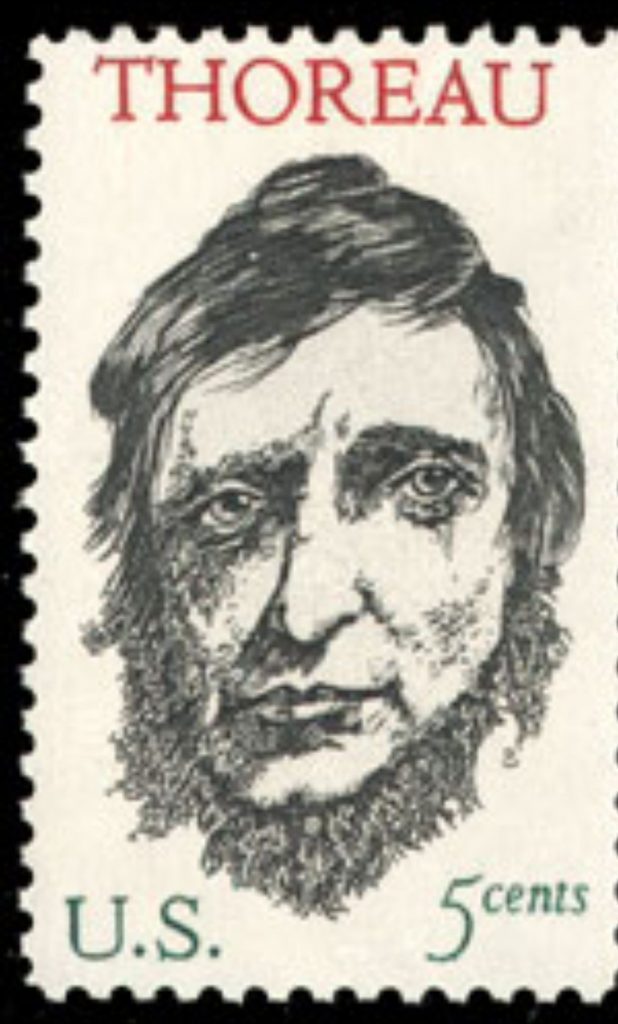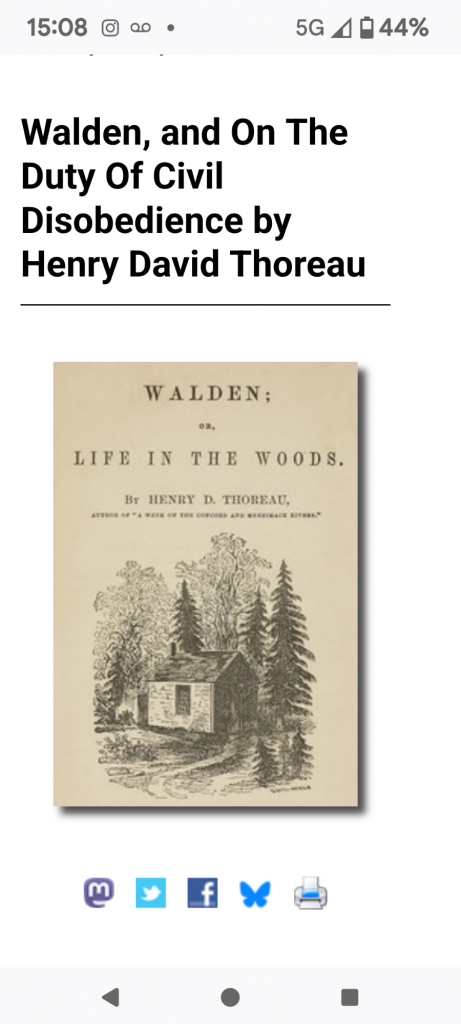
Today, is Independence Day. The day that a great democracy came into being and established a rational system of Government, designed to stop autocracy. One of the great thinkers of the US was Henry David Thoreau. He moved into his hut on Waldon Pond on 4th July 1845. He wanted to experience life to the full. He thought he could best do that by living a simple life in the wild.
Some think he was autistic, but his journals and publications show he lived a rich life. His work links observations of nature with philosophic meditations and folk lore. His interest in ecology and avoidance of waste are forerunners of modern environmentalism.
‘Walden’ his book about life in his hut near Concord, Massachusetts is his best known work.
I began to occupy my house on the 4th of July, as soon as it was
boarded and roofed, for the boards were carefully feather-edged and
lapped, so that it was perfectly impervious to rain; but before
boarding I laid the foundation of a chimney at one end, bringing two
cartloads of stones up the hill from the pond in my arms. I built the
chimney after my hoeing in the fall, before a fire became necessary for warmth, doing my cooking in the mean while out of doors on the ground, early in the morning: which mode I still think is in some respects more convenient and agreeable than the usual one. When it stormed before my bread was baked, I fixed a few boards over the fire, and sat under them to watch my loaf, and passed some pleasant hours in that way. In those days, when my hands were much employed, I read but little, but the least scraps of paper which lay on the ground, my holder, or tablecloth, afforded me as much entertainment, in fact answered the same purpose as the Iliad.
Thoreau and Civil Disobedience.
From Project Gutenberg. Thoreau was also a principled opponent of unjust laws. He inspired Gandhi, amongst others, in the principles of Civil Disobedience. He was imprisoned for refusing to pay tax to the American state in protest at the African-American War and Slavery. He supported John Brown.

John Brown’s Body lies a mouldering in his grave.
Brown believed that slavery would only be ended by fighting to liberate the slaves. He was involved in the State Civil War in Kansas. Subsequently, he then launched a raid on Harper’s Ford, which caused several deaths. Brown was found guilty of Treason against the Commonwealth of Virginia and executed. He was the first American to be found guilty of Treason. But Thoreau supported him, while other Abolitionists took a more pacifist position.
All in all, he is therefore an inspiring character. His life can inform that still tricky debate about challenging injustice in the modern world. Attitudes to ‘Just Stop Oil’ and the war in Gaza are causes where the same issues are still open to debate.
First published July 2025
